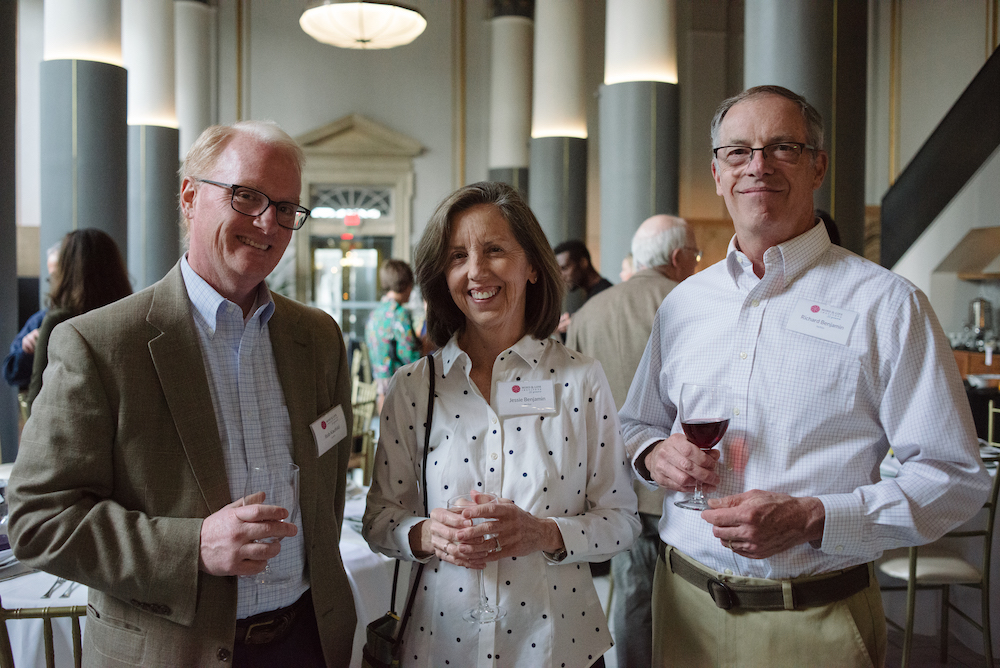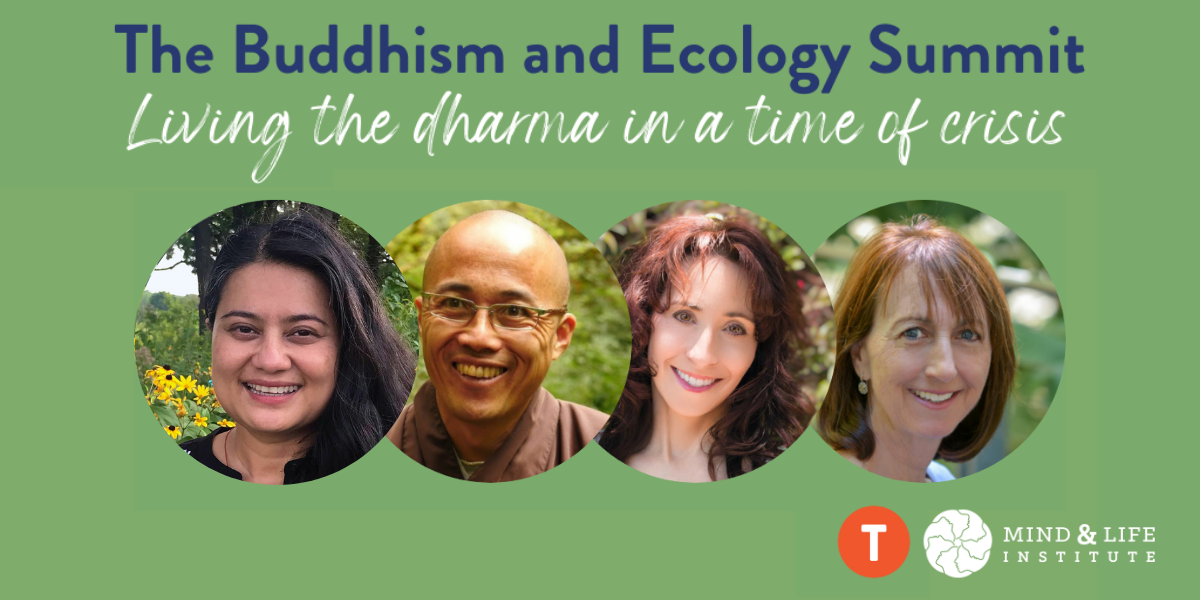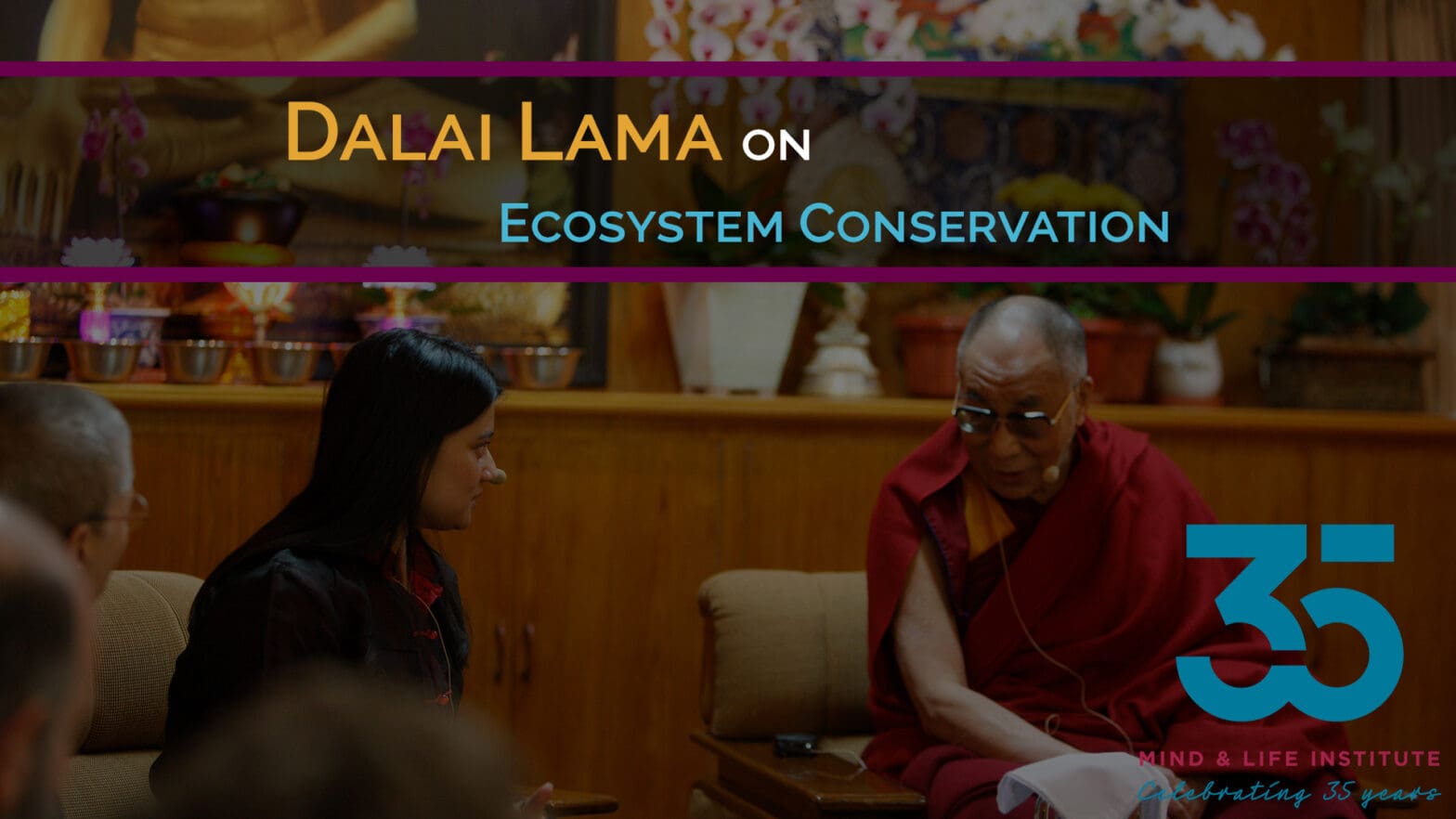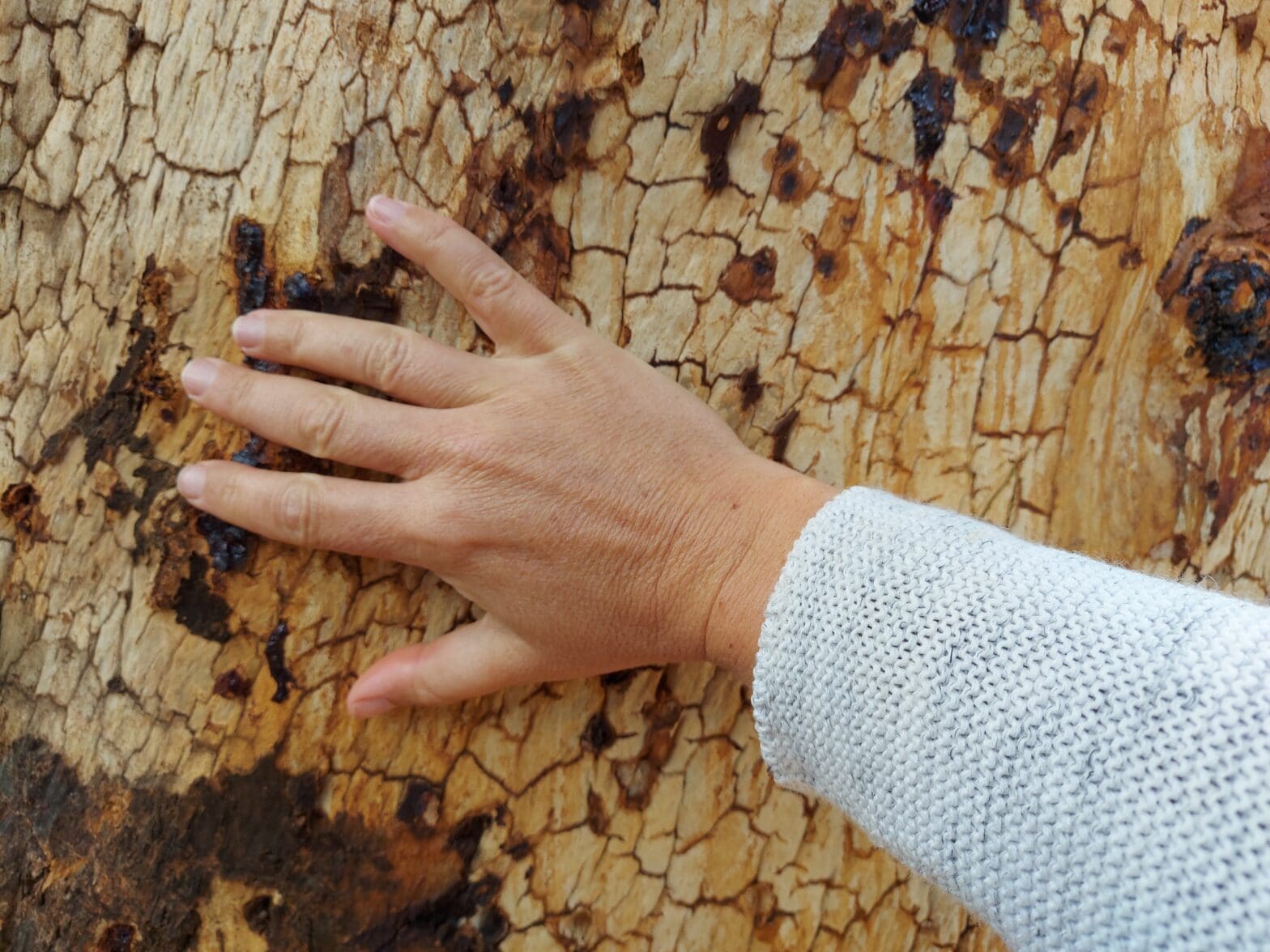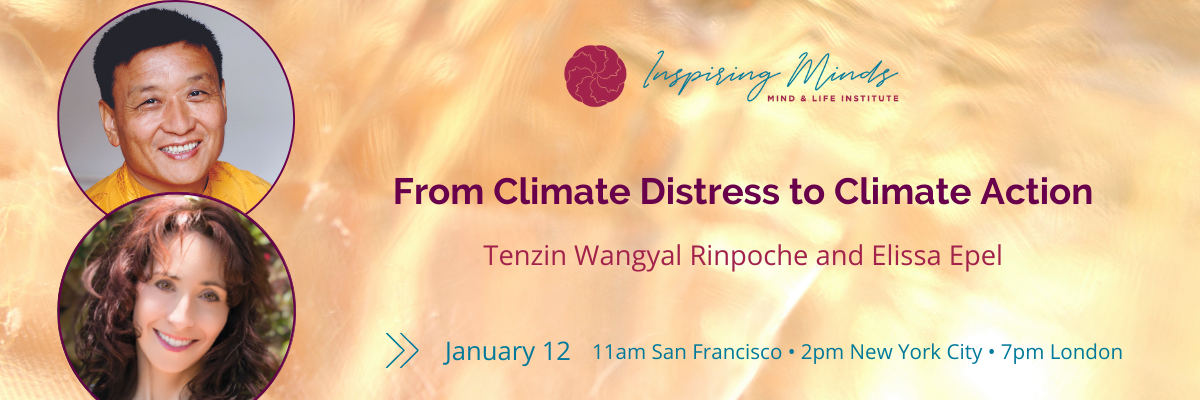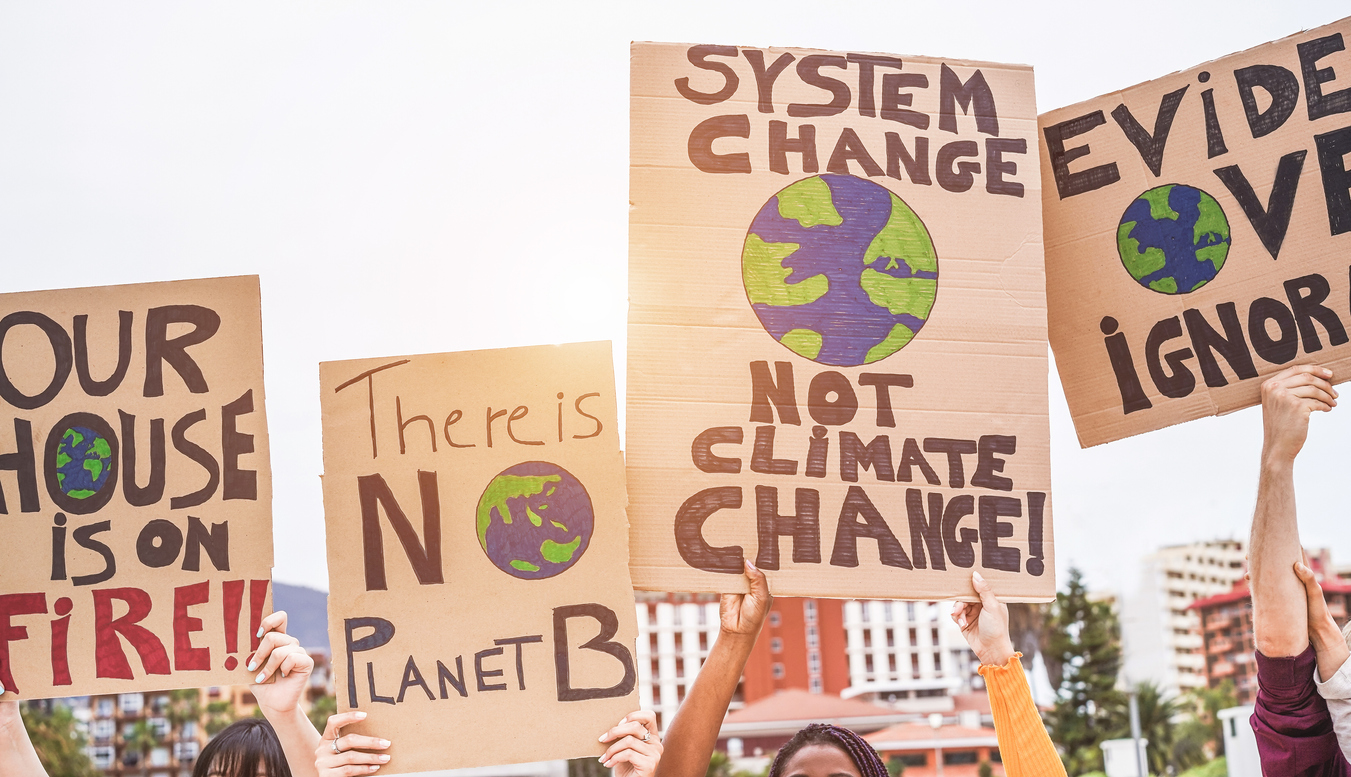It’s clear that Jessie and Richard Benjamin like doing their research. When looking for ways to philanthropically support the causes they care about, the couple makes sure an organization’s mission and vision for the future align with their own. It makes sense, then, that Richard and Jessie were drawn to Mind & Life. It started …
Topic Archives:
Facing the Climate Crisis through Connection, Community, and Compassion
The existential threat of climate change can be challenging to grasp and confront. To stay motivated and energized to face this threat, we must develop skills and take time for our own well-being. “We have to acknowledge that what happens to us internally affects what happens to our communities,” says climate activist Dekila Chungyalpa, “and …
Continue reading “Facing the Climate Crisis through Connection, Community, and Compassion”
Connection, Community, and Compassion: Resources for our Emotional Well-being
In honor of Earth Day 2022, Tricycle hosted the Buddhism and Ecology Summit, including a panel in partnership with the Mind & Life Institute. This hour-long conversation on “Connection, Community, and Compassion: Resources for our Emotional Well-being” features climate activist Dekila Chungyalpa, stress scientist Elissa Epel, Buddhist teacher Brother Chân Pháp Dung, and moderator Mind …
Continue reading “Connection, Community, and Compassion: Resources for our Emotional Well-being”
The Dalai Lama – The Planet is our Home
In a video clip from 2011, the Dalai Lama responds to Mind & Life Fellow Dekila Chungyalpa about ecosystem conservation at the Mind & Life Dialogue on Ecology, Ethics, and Interdependence. We shared this video in 2022 as part of our 35th anniversary celebration.
Listening to Our Body’s Intelligence: Reflections from Mind & Life’s Summer Research Institute
Mind & Life periodically invites guest writers to contribute their perspectives and experiences on the blog as a way of deepening dialogue and understanding around key themes related to our mission. This post is adapted from a longer piece Megan published reflecting on her experience at our 2021 Summer Research Institute. “Storytellers have only three …
Merging mindfulness and climate change education
In light of the climate crisis, one of the biggest impediments to social action is changing individual mindsets towards greater human-earth connection, and sustainability practices. The “Bending the Curve” (BtC) Climate Change solutions curriculum has now been adopted at-scale across nine University of California campuses and also at the University of Stockholm, with over 1000 …
Continue reading “Merging mindfulness and climate change education”
Documenting Mayan Milpa biocultural heritage through embodied ethnoecology
Milpa is a millennia-old agricultural polycrop system from Mesoamerica that continues to be widely used in México. Milpa includes maize, beans, and squash, often mixed with other crops. This agroecological system has many sustainable properties, including the ability to support large crop yields without requiring pesticides or fertilizers, even in nutrient poor soil. Lineage holders …
Continue reading “Documenting Mayan Milpa biocultural heritage through embodied ethnoecology”
Inspiring Minds – January 2022
Our January 2022 conversation features Tenzin Wangyal Rinpoche and Elissa Epel. They discuss how contemplative practice can build resilience to address injustice and the climate crisis.
Transformative Social and Emotional Learning as a Catalyst for Climate Action
There’s a saying in the climate movement that to change everything will take everyone. In my work as an educational leader of color dedicated to transforming school communities through Social and Emotional Learning (SEL), I believe it’s imperative that schools ultimately position SEL in service of a shift in collective consciousness.
Contemplative Environmental Mentoring Communities
Professors of Environmental Studies face a unique pedagogical challenge. They must teach about the immensity of global environmental harm without falling into deep cynicism. Professors can meet this challenge by facing up to their own fears and developing the courage to share insights as honestly as possible. This requires a high level of self-awareness and …
Continue reading “Contemplative Environmental Mentoring Communities”

